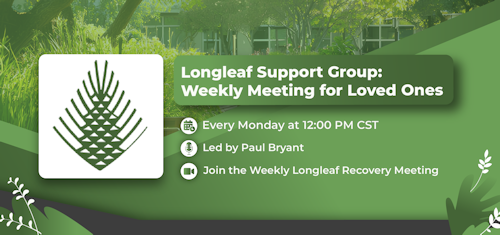In 2021, more than 15.3 million people received prescriptions for Xanax® in the United States. Although this medication can be beneficial for individuals struggling with anxiety, their potential for abuse cannot be overlooked. Unfortunately, more than 5.3 million people report abusing this medication within a one-year period.
When trying to overcome Xanax addiction, it is common for individuals to experience severe withdrawal symptoms. With the help of our team at Birmingham Recovery Center in Birmingham, AL, we can help ease some of the Xanax withdrawal symptoms you experience while safely coming off this drug. A better understanding of what to expect throughout the process can help you achieve sobriety.
What Is Xanax?
Xanax is a type of benzodiazepine medication that is often prescribed to individuals to treat panic disorders and anxiety disorders. In some cases, patients may also receive this medication to treat insomnia.
Xanax works by enhancing the activity of neurotransmitters in the brain, notably gamma-aminobutyric acid (GABA), which helps to reduce excessive brain activity and promote relaxation. This medication is often prescribed due to the fact that Xanax works very quickly to provide short-term relief for individuals experiencing symptoms. However, it can also be habit-forming and carries a risk of dependence and addiction, so it is typically prescribed cautiously and for limited durations.
Common Symptoms of Xanax Withdrawal
Experiencing Xanax withdrawal can be a challenging and uncomfortable process. Common symptoms of Xanax withdrawal may vary from person to person but often include:
- Increased levels of anxiety
- Feeling restless
- Extreme irritability
- Muscle aches
- Sweating
- Problems sleeping
Other common symptoms of Xanax withdrawal can include gastrointestinal issues like vomiting, nausea, and diarrhea. Many individuals report feeling fatigued or experiencing headaches during this time as well. It’s important to note that the severity of these symptoms can depend on various factors, including the dosage of Xanax taken and the duration of use.
Some people going through Xanax withdrawal may also encounter psychological symptoms like mood swings or even panic attacks. These symptoms can be distressing but are typically temporary as the body adjusts to being without the drug. If you or someone you know is struggling with Xanax withdrawal symptoms, it’s essential to seek support from medical professionals or support groups.
Timeline of Xanax Withdrawal
Although the timeline of Xanax withdrawal will differ from person to person, symptoms may start within hours of missing a dose. Initially, you might experience anxiety, insomnia, and restlessness.
As time goes on, usually around 1-4 days after stopping Xanax, more intense symptoms like panic attacks and increased heart rate may occur. This period is often referred to as the peak of withdrawal.
Around a week into withdrawal, physical symptoms such as muscle pain and tremors might become more pronounced. It is crucial during this time to stay hydrated. Additionally, you should eat nutritious foods to help your body recover.
After about two weeks without Xanax, many individuals report a gradual decrease in the severity of their symptoms. However, some psychological effects, like mood swings or depression, could persist for more extended periods.
Remember that everyone’s journey through Xanax withdrawal is unique. It is essential to seek support from our team at Birmingham Recovery Center throughout this process for guidance and assistance to meet your specific needs. Our team will supervise your withdrawal symptoms to ensure you remain safe at all times.
Coping Strategies for Dealing With Xanax Withdrawal
Dealing with Xanax withdrawal can be challenging, but there are coping strategies that can help ease the process. One effective way to manage symptoms is by staying hydrated and eating nutritious foods. Maintaining a healthy diet can support your body as it adjusts to functioning without the drug.
Regular exercise can also be extremely helpful in overcoming withdrawal symptoms and learning new, healthier habits. Physical activity releases endorphins, which can help reduce anxiety and improve your overall mood. In addition, it can be extremely beneficial to establish a consistent sleep routine. Consider practicing relaxation techniques like deep breathing or meditation may aid in managing insomnia and restlessness.
Communicating openly with trusted friends or family members about your experience is crucial. A strong support system can provide emotional reassurance and encouragement throughout the withdrawal period. Consider seeking professional help from our team at Birmingham Recovery Center. Our staff has trained and highly educated therapists and counselors with extensive experience helping individuals overcome their addictions.
Preventing Relapse and Maintaining Long-Term Recovery
One of the most significant challenges individuals face after going through Xanax withdrawal is preventing relapse and maintaining long-term recovery. Developing a reliable support system that includes friends, family, therapists, or support groups who understand your journey and can offer guidance when needed is crucial.
In addition to social support, incorporating healthy habits into your daily routine can significantly reduce the risk of relapse. This may include regular exercise, mindfulness practices like meditation or yoga, a balanced diet, and sleeping well each night. Taking care of your physical and mental well-being is essential in staying on track with your recovery goals.
Avoiding triggers that may tempt you to use Xanax again is also crucial in preventing relapse. Whether these relapses are certain places, people, or situations that remind you of past drug use, recognizing these triggers early on can help you navigate them more effectively. Learning healthy coping mechanisms to deal with anxiety and stress without relying on substances is critical for long-term success in recovery.
Remember that recovering from Xanax addiction is a journey filled with ups and downs. Stay committed to your sobriety goals, and be patient with yourself as you navigate the process of preventing relapse and achieving long-term recovery.
Get Help in Birmingham, AL, Today
Birmingham Recovery Center’s mission to improve the lives of individuals struggling with addiction and co-occurring disorders is demonstrated through our comprehensive and holistic program. As evidenced by our commitment to community outreach and providing resources for prevention and support, our rehab center goes above and beyond in helping those on the journey toward recovery.
If you or a loved one is struggling with Xanax or experiencing withdrawal symptoms, contact our team at Birmingham Recover Center for guidance. Our team in Birmingham, AL, can offer you a safe location staffed with professionals to help you overcome your addiction and achieve recovery. Call (205) 813-7400 to get the help you need.






